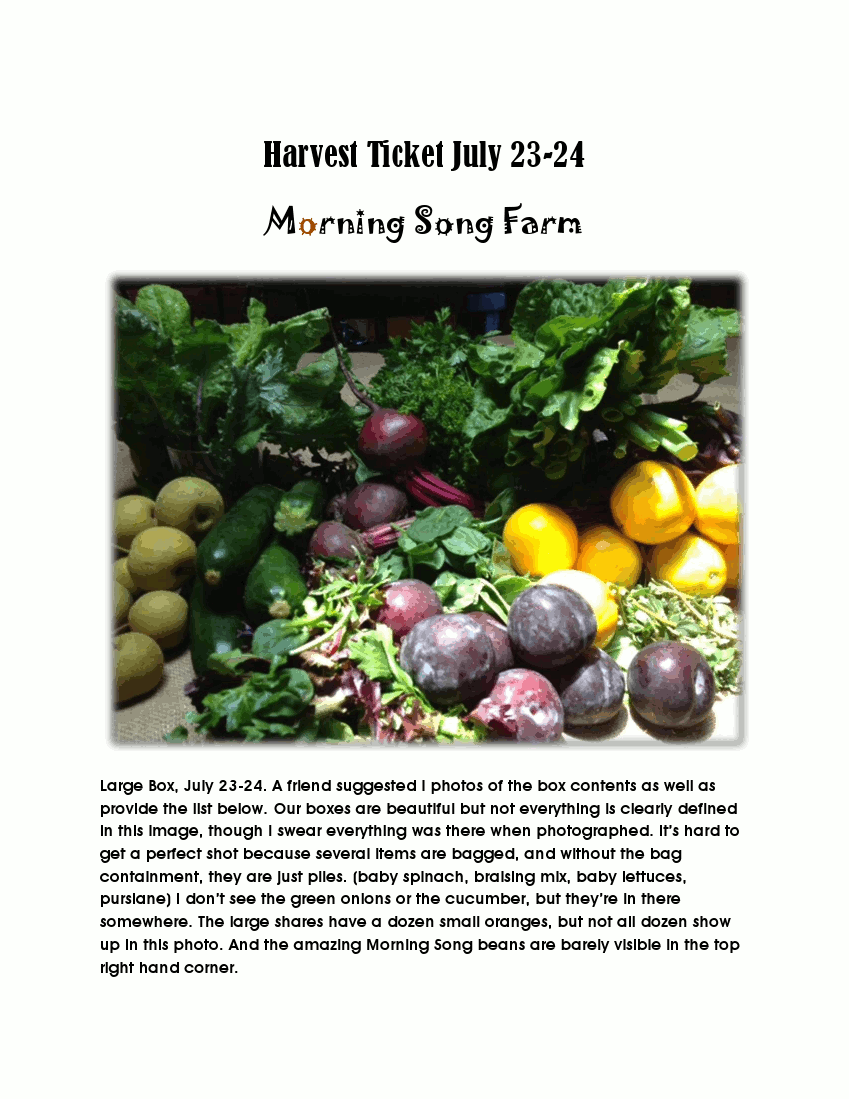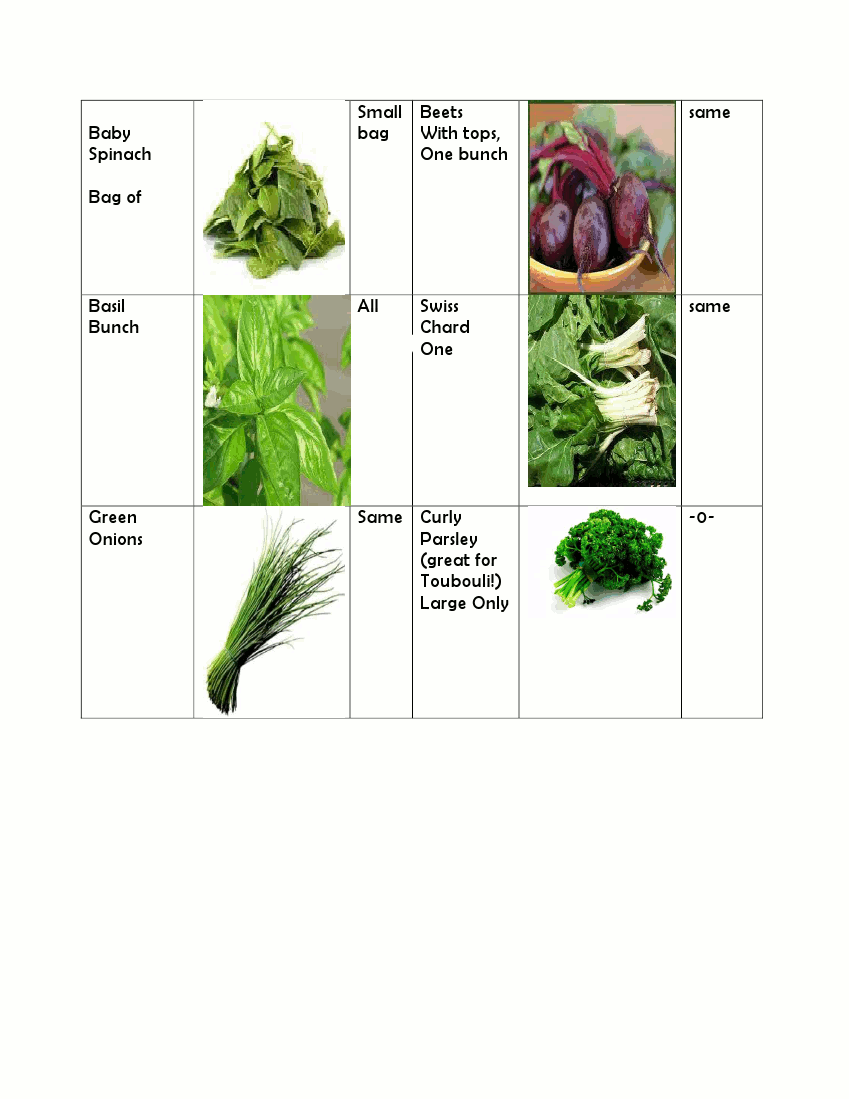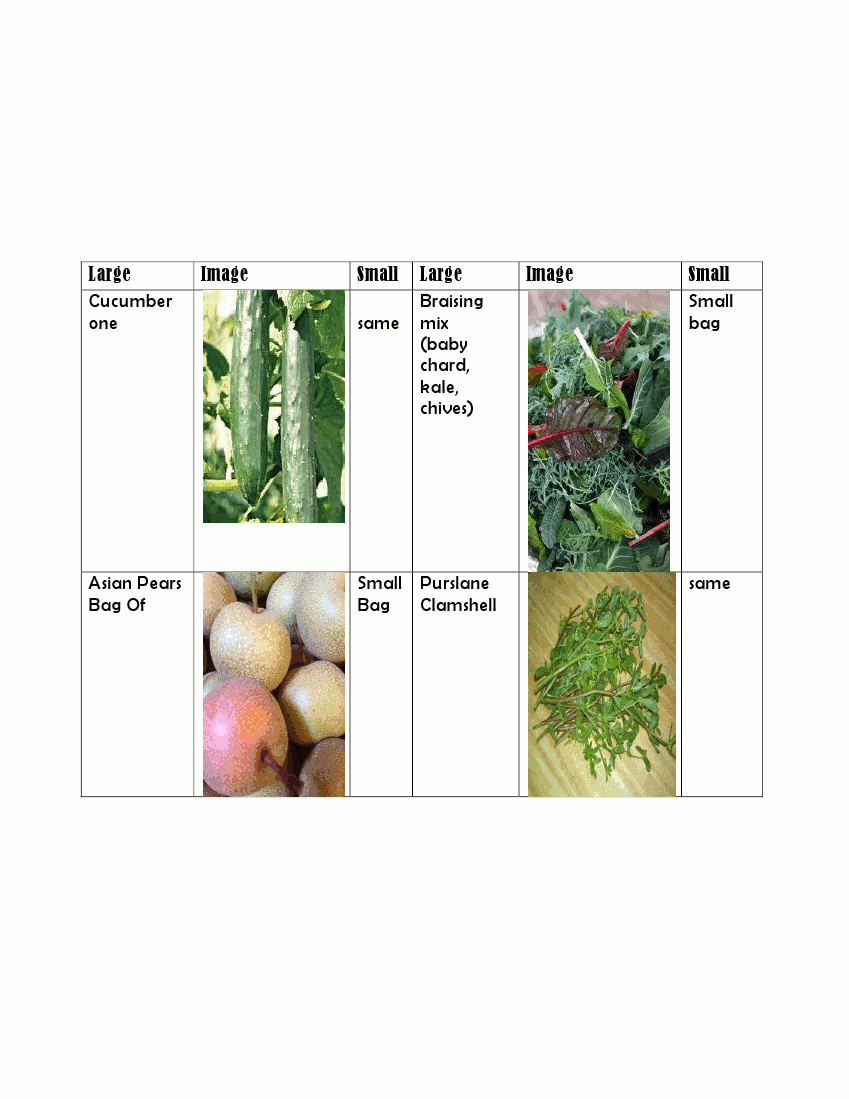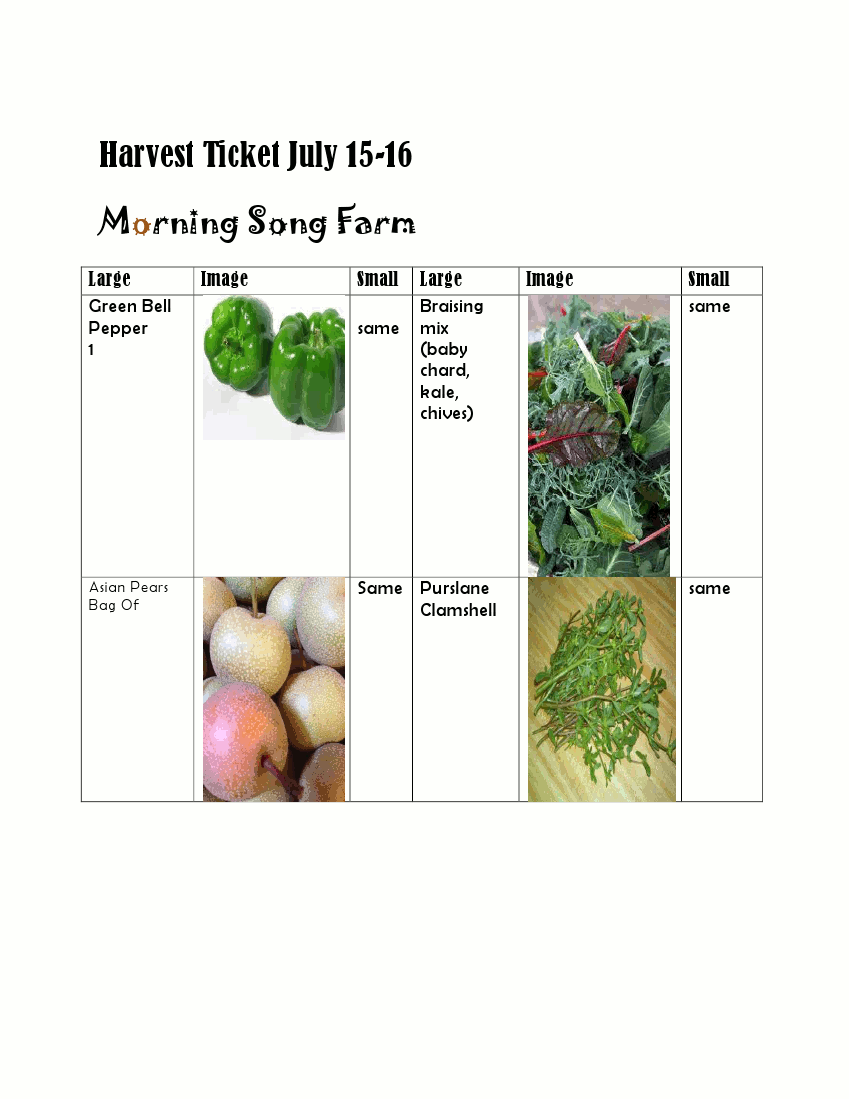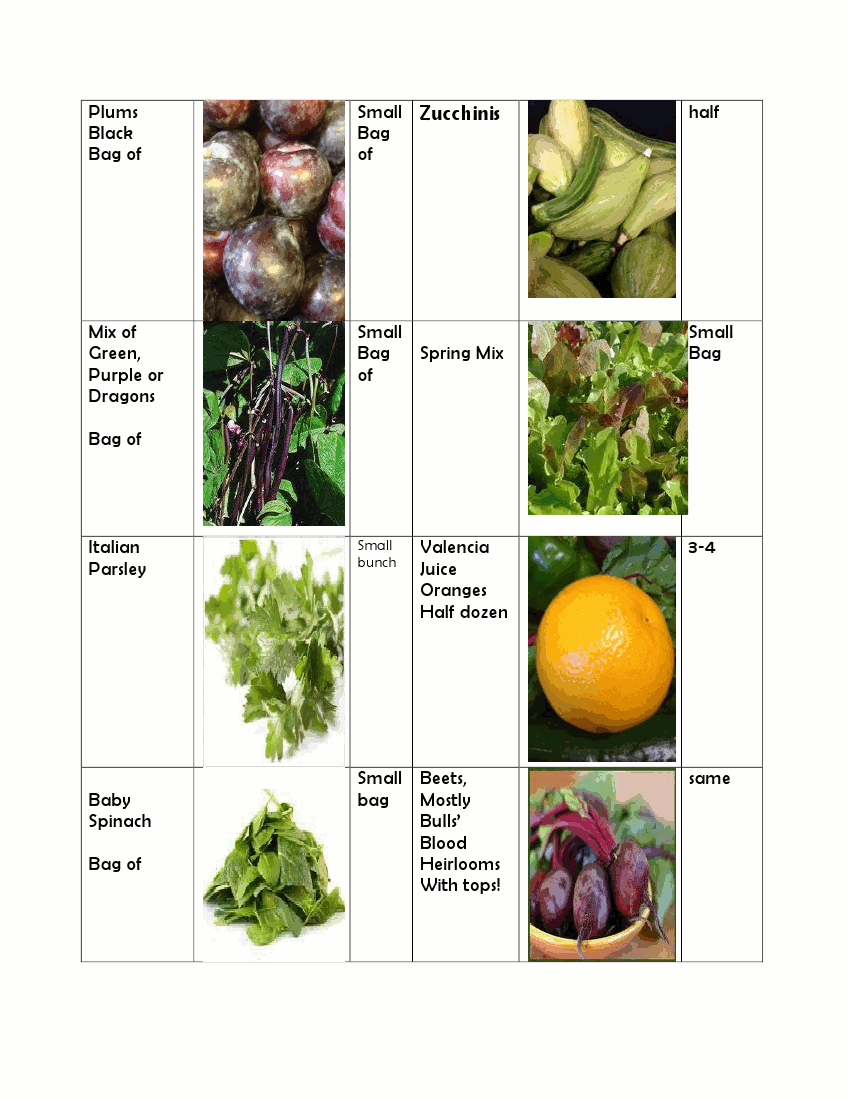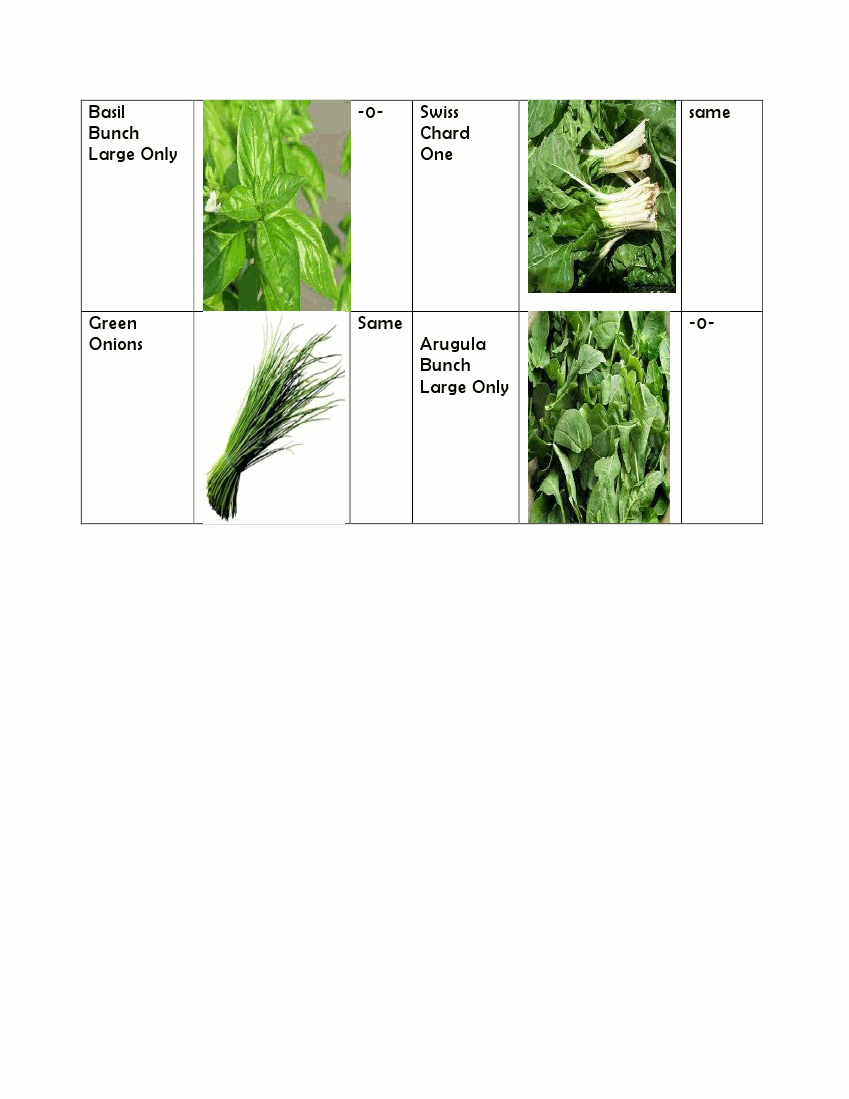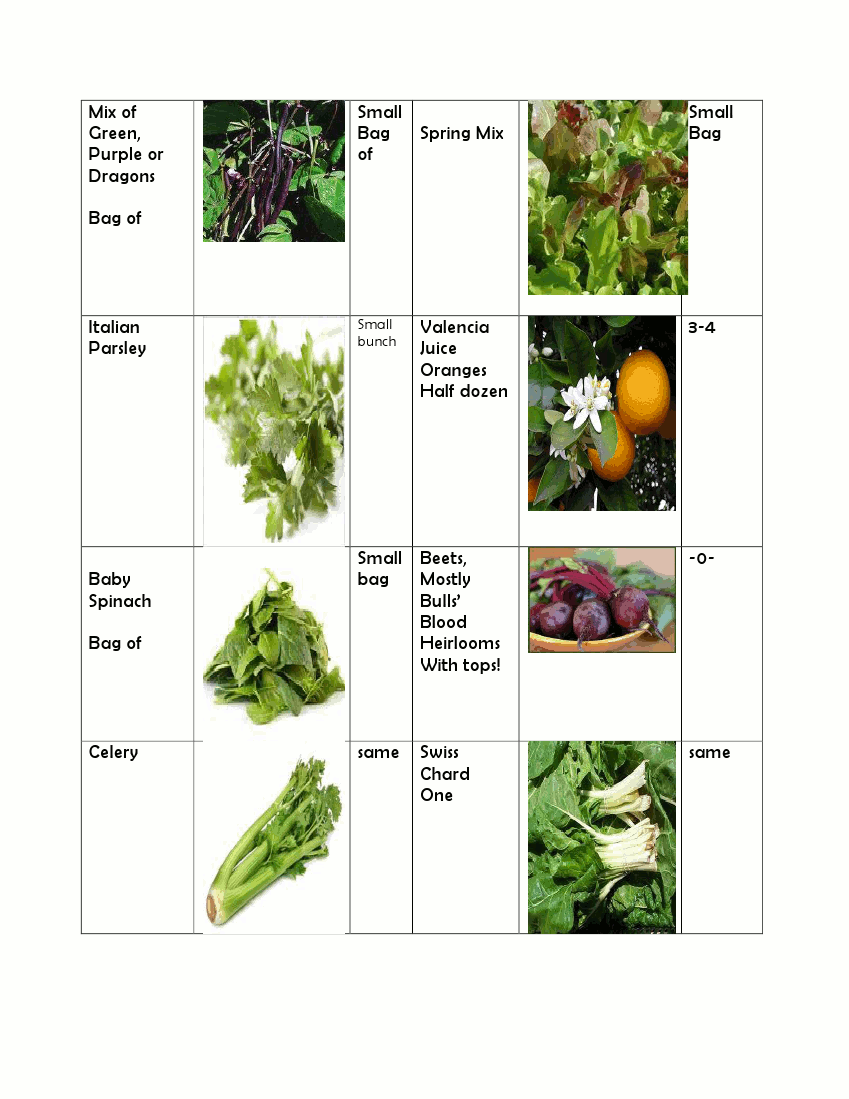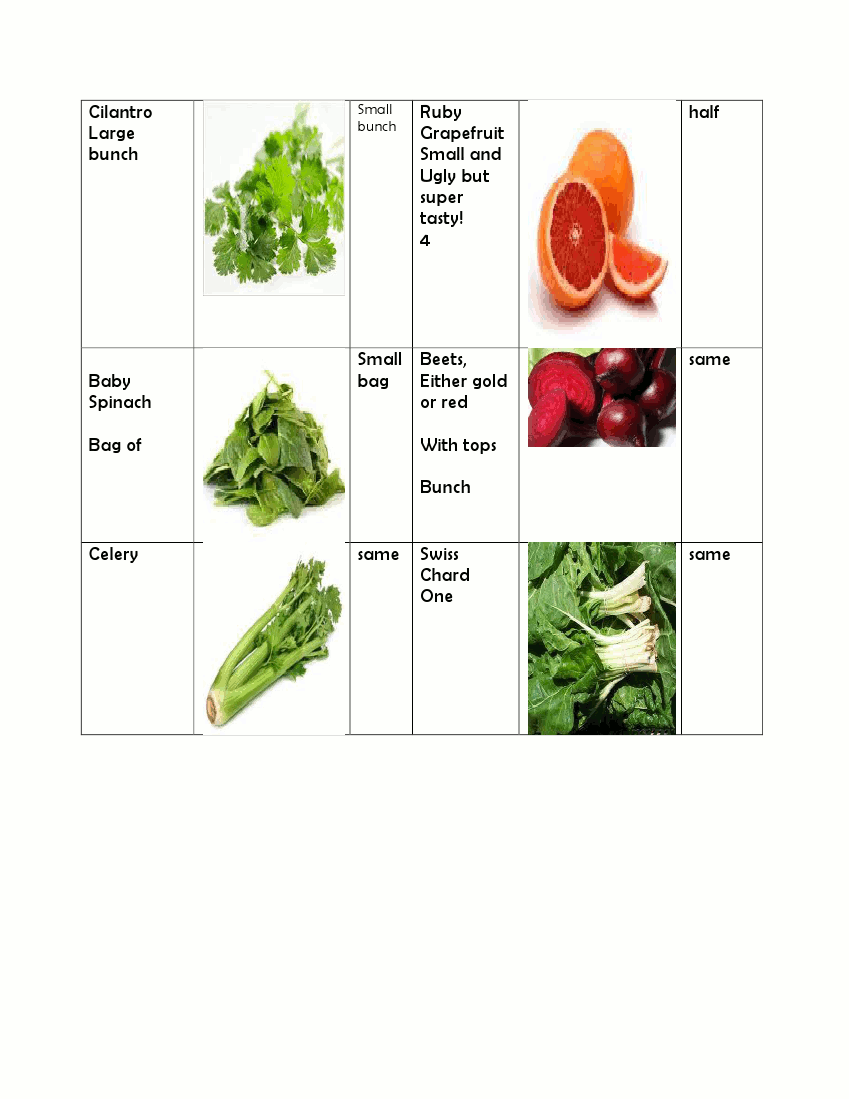Uncategorized Archives - Page 9 of 43 - Morning Song Farm
 We had a tough time last week getting the lids shut on our boxes, particularly the large shares. Despite the ongoing war with rabbits and squirrels, our gardens are offering bumper crops of lots of different items; with thousands of row feet of tomatoes coming soon! We really weren’t expecting the baby kale-dominated braising mix to be still going strong in the middle of summer, but there it is; looking great. The basil looks succulent this week, and we’re proud to offer large box subscribers our carefully tended Arugula.
We had a tough time last week getting the lids shut on our boxes, particularly the large shares. Despite the ongoing war with rabbits and squirrels, our gardens are offering bumper crops of lots of different items; with thousands of row feet of tomatoes coming soon! We really weren’t expecting the baby kale-dominated braising mix to be still going strong in the middle of summer, but there it is; looking great. The basil looks succulent this week, and we’re proud to offer large box subscribers our carefully tended Arugula.
We’ve discovered using winter row covers to guard against this time of year’s total flea beetle devastation and we’ve cut beautiful, small bunches for all large shares. (There’s no way large bunches would have fit in the boxes!) Little by little we’re providing less outstanding organic greens for resident squirrels by shoring up the matrix of entrances to our gardens. We’ve fenced, dug down and buried chicken wiring barriers, we’ve wrapped the fencing in dust barriers so that squirrels can’t see into the gardens. (This is a trick that Joe over at JR Organics offered us, and it seems to help).
Garden Two appears to be Squirrel Free, an absolute 10 year first here on Morning Song Farm. All of our row crops are completely fenced in, but that doesn’t stop agile, fence climbing, tree climbing, organic arugula eating varmints. Ha! A mere fence? Surely we jest? Because our 700 macadamia tree grove is really just a Squirrel Magnet, and because when I first became the farmer here over a decade ago, I insisted that we could all live together so let’s not hurt any cute squirrels, the Confiscatory Squirrel Invasion is only now, so many years later, finally getting beat back to a dull roar. And for transparency’s sake, let me be clear that “beating back” is a loose term and in no way should be interpreted as our having won the Squirrel War. So lesson learned: when you buy a nut farm and your totally experienced grove manager insists you can’t coexist peacefully with the cute fluffy tailed squirrels… consider the possibility he knows his stuff and don’t intervene with his pest management program. Override the experienced guy in the cowboy boots and well worn sling shot hanging out his back pocket… at your peril! There have been years where we really lost 95% of the mac crop to squirrels, once their population took hold, it seemed like it was hopeless. Such that it was pointed out to me back then, never mind by whom, ….each quarter pound of macadamias “sold,” represented a wealth transfer equivalent to a down payment on a small condo.
I had thought that we could just allocate a certain amount of our crops to the bugs, rabbits and squirrels, and then we could all live in peace. That really is who I am, and I thought that losing some produce to squirrels was a good trade off. I’m also really committed to being a successful, sustainable farmer. At some point I had to decide to get out of farming completely or adjust my viewpoint. There, right there; is the overlapping intersection of ivory tower farming ideology and rural reality. I wasn’t aware of the Varmint Population Explosion Theory of our former grove manager (who continues to be a dear friend and regularly offers his advice) that reads something like this: the varmints will increase in population until there is nothing left to eat. With 700 macadamia trees, and hundreds of fruit trees, that’s a whole lot of squirrel food before they run out of nuts, and when the nuts are all eaten…and the macadamia nut-fueled furry population explosion gets hungry…they aren’t going to buy a plane ticket elsewhere…they will be forced enmasse to start devouring other things, like tree bark (killing the whole tree outright) or anything leafy green at all that you foolishly think you can grow. Chain link fences won’t save you, electrical fences won’t save you, digging down and putting underground barriers won’t save you. Unless you plan on going Caddy Shack on your whole farm at some point, focused, unrelenting pest management is key.
Ouch. Yep, I do remember him saying all that, but I just really thought because he’d never tried coexisting, that we should try it. Unfortunately, it’s taken almost a decade to get back under control. Wow. Hats off to you Gregorio. Wish I’d listened to you to begin with, it’s only taken us 10 years to get back to where we were to begin with because we didn’t.
Well, not a a partridge, and not a pear tree. Peering out at the photographer: our not-as-stealth-as-they-think-they-are juvenile hens roosting in their new favorite tree: a sapote. They’re not laying eggs yet, but have finally taken to launching into the trees at night to guard against predator attacks. Baby chicks don’t roost, so we know we’re halfway to eggs when a young hen starts to fly at night.
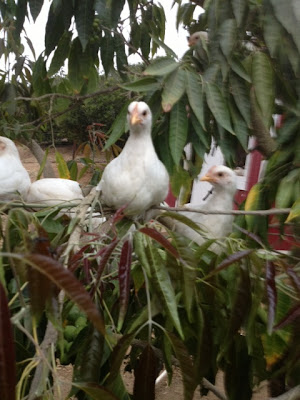 True story: back in the day when I was married and living in the suburbs of San Clemente and commuting to the family farm…I raised our chickens against city ordinance law right there in San Clemente and then brought them; squawking and clucking to the farm when I (inevitably) was issued a San Clemente “chicken ticket.” The kids couldn’t bare to leave the cute babies at the farm all week, only seeing them on the weekends, and I truly have always enjoyed raising baby chicks. Even today, so many years later, I get such a kick out of watching their antics. Often a quick feeding turns into a chicken sojourn as I sit under a tree of their enclosure and watch them enjoy life.
True story: back in the day when I was married and living in the suburbs of San Clemente and commuting to the family farm…I raised our chickens against city ordinance law right there in San Clemente and then brought them; squawking and clucking to the farm when I (inevitably) was issued a San Clemente “chicken ticket.” The kids couldn’t bare to leave the cute babies at the farm all week, only seeing them on the weekends, and I truly have always enjoyed raising baby chicks. Even today, so many years later, I get such a kick out of watching their antics. Often a quick feeding turns into a chicken sojourn as I sit under a tree of their enclosure and watch them enjoy life.
So, I’d pick up just hatched babies at the SC post office, and raise them in one of way too many bathrooms in that house that always felt more like a hotel than a home. No, I did not fit in, demographically, as chickens and toddlers romped in my enclosed front yard, during the day, and then we’d go through the drill, of herding the babies into a crate that I’d put in a bathroom at night. As they got a little larger, the crate wouldn’t do, and so I chose an enclosed shower to keep them in at night. In the early days, I had no idea how chickens developed, and so went through quite a panic when one morning I discovered two dozen half grown chickens missing from the shower floor. (the call to my then-husband to admit that two dozen pooping chickens had gone missing in his house did nothing to ameliorate the growing distance between us;) As it turned out, had I just looked UP, I’d have discovered the chickens peering down wondering what all the fuss was about. They had all discovered THAT very day, that they could fly, enmasse, and were roosting on the top of the shower’s expansive glass shower enclosure.
Despite the four acres our home was situated on, someone offended by our outlier activities eventually complained each and every time I raised a new flock over the years, and the City of San Clemente would dutifully send out an “enforcer” to come pay a visit with yet another chicken ticket that my ex would use as demonstrable proof I was nuts. And so,
the new flock would be moved to the farm.
Still got chickens. Still may be nuts.
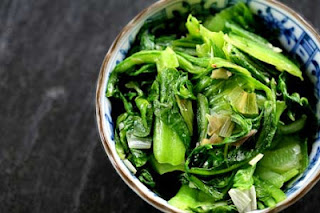 If you’ve never tried mustard greens, large box subscribers may have found their new best friend. Popular in Chinese, Japanese and Indian cooking, mustard greens have only rarely found themselves in US restaurants until recently. Related to kale, cabbage and collard greens, they are packed with nutritional value. See link here: http://www.whfoods.com/genpage.php?tname=foodspice&dbid;=93
If you’ve never tried mustard greens, large box subscribers may have found their new best friend. Popular in Chinese, Japanese and Indian cooking, mustard greens have only rarely found themselves in US restaurants until recently. Related to kale, cabbage and collard greens, they are packed with nutritional value. See link here: http://www.whfoods.com/genpage.php?tname=foodspice&dbid;=93
The leafy green originated in the Himalayas and has been consumed for 5,000 years, just not much in the U.S. until recently. Part of the recent interest in mustard greens is the cholesterol lowering ability and cardiovascular support of the raw or cooked leafy green. The link above goes into a great deal more detail of how that works for those that are interested.
Rinse leaves under cold running water and cut into chunks for quick and even cooking. Let them sit out of your refrigerator for 5 minutes before cooking, which helps activate healthy enzymes. Slice celery on the diagonal, and toss in the pan along with your greens.
In a medium saucepan, boil a quarter cup of water or broth and add mustard greens and sliced celery. Cover for 5 minutes or until tender. Toss with a tablespoon of olive oil or coconut oil, a crushed garlic clove, a splash of lime juice, sea salt, pepper and serve at once.
This is where having a Vitamix at the ready really comes in handy, although a lesser mixer will probably do the trick, just not quite as smoothly.
 Ingredients:
Ingredients:
1 medium white onion, chopped
About 6 ribs of celery, coarsely chopped
3 cloves of garlic, crushed before putting in blender
1 tablespoon coconut oil or olive oil
2 small potatoes, peeled and chopped
1 teaspoon of salt
dash of hot sauce (I use Frank’s)
Procedure:
Sauté onion, celery, garlic and potato in oil until soft, taking care not to use too high a heat that might result in browning. Put the equivalent of 2 cups of water in crushed ice in your blender, and add your finished, sautéed mixture. Blend until smooth and serve. Add a little more chilled water if the end result isn’t liquid enough, stirring thoroughly.
 Another quick and tasty side dish from Morning Song Farm. I dumped the entire bag of this weeks’ braising mix in my largest sauté pan and chipped maybe a tablespoon or so of coconut oil into the pan to melt. I added a couple crushed garlic cloves, sliced up a few green onions, and added mushrooms, sea salt and ground pepper. Also a few strong splashes of hot sauce.
Another quick and tasty side dish from Morning Song Farm. I dumped the entire bag of this weeks’ braising mix in my largest sauté pan and chipped maybe a tablespoon or so of coconut oil into the pan to melt. I added a couple crushed garlic cloves, sliced up a few green onions, and added mushrooms, sea salt and ground pepper. Also a few strong splashes of hot sauce.
I use a counter top rice cooker for brown rice and other grains, and usually have it going every morning to add to some dish or another. So I already had the rice cooked, and waiting. I love the aroma of coconut oil and leafy greens in my kitchen. And although coconut oil is very mild, it does have a tropical taste that I enjoy. When the greens were almost done, I just stirred in the brown rice, and served immediately. I made more than I needed, and made up single serving portions and put in the refrigerator for lunches and healthy snacks. I tried it both reheated and chilled and served as a salad, right out the refrigerator, and they both are tasty.
